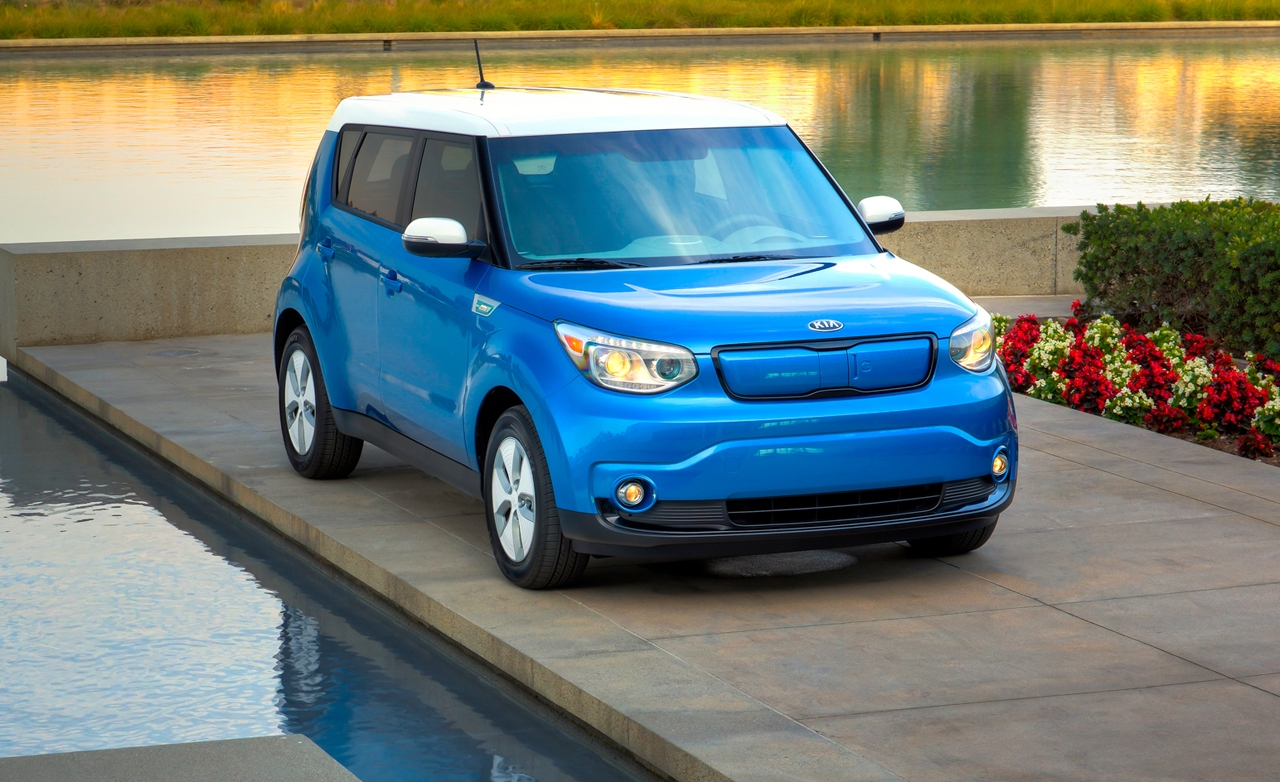
 Your Credit Estimate
Your Credit Estimate
Your zip code helps us provide you with the most accurate vehicle pricing and vehicle availability.
We estimate your credit score to give you an idea of your monthly payments. To get an accurate payment amount, complete our credit application by clicking the Start Credit Application button below.
start credit application
Available at just 17 dealerships in California, the Kia Soul EV was made for one purpose, and one purpose only: compliance.
It was never meant to be sold as a mass market EV like the Nissan Leaf, but thanks to enthusiastic customers, and a surprising amount of interest from new types of buyers, Kia will be bringing the Soul EV to new markets in the not-so-distant future. So we might be seeing it next to the gasoline-powered Soul as a new Car in Sanford, FL soon!
Originally, the South Korean car company said it would eventually be available in Oregon, New York, New Jersey, and Maryland, but its future beyond that was unclear.
But instead of announcing its expansion to those states, we might see the Soul EV in completely different markets. At this point, Kia has yet to comment about the expansion any further.
A compliance car is an electric car that is sold in California in order to comply with the state’s zero-emission vehicles rules.
Those rules state that California’s six largest car manufacturers must offer a certain number of battery electric or fuel cell electric vehicles.
In response to this, many manufacturers have released electric cars only available in limited numbers throughout California. These vehicles have been dubbed “compliance cars” because the manufacturer has no plans to release it outside of California, and a few other select states in some cases.
Examples of Compliance Cars:
Chevy Spark EV
Fiat 500e
Honda Fit EV
Toyota RAV4 EV (Discontinued)
Once it expands into new markets here in the U.S., the Soul EV’s biggest competition will without a doubt be the Nissan Leaf.
On top of being available nationwide, the Leaf is also the most affordable fully-electric cars on the market, at just above $21,000 after the $7,500 federal tax credit for the base model. The Soul EV starts at $26,200 after the $7,500 federal tax credit, so the Leaf is in a league of its own in terms of EV affordability.
In terms of range, however, the Kia Soul EV does beat the Leaf. With an average of 73 miles per charge, compared to the Soul EV’s 93-mile EPA estimated range, the Leaf is suffering in the range department.
In terms of cargo space, the Soul EV also adds more practicality to the electric car than the Nissan Leaf. The Soul EV, with the rear seats folded, features 49.5 cubic feet of space versus the Leaf’s 30 cubic feet of space.
But in the end, there’s no clear winner in the battle of the Kia Soul EV vs. the Nissan Leaf. Both are incredibly capable electric vehicles. Buyers will simply have to decide if they need more space and range, or if price is the deciding factor.